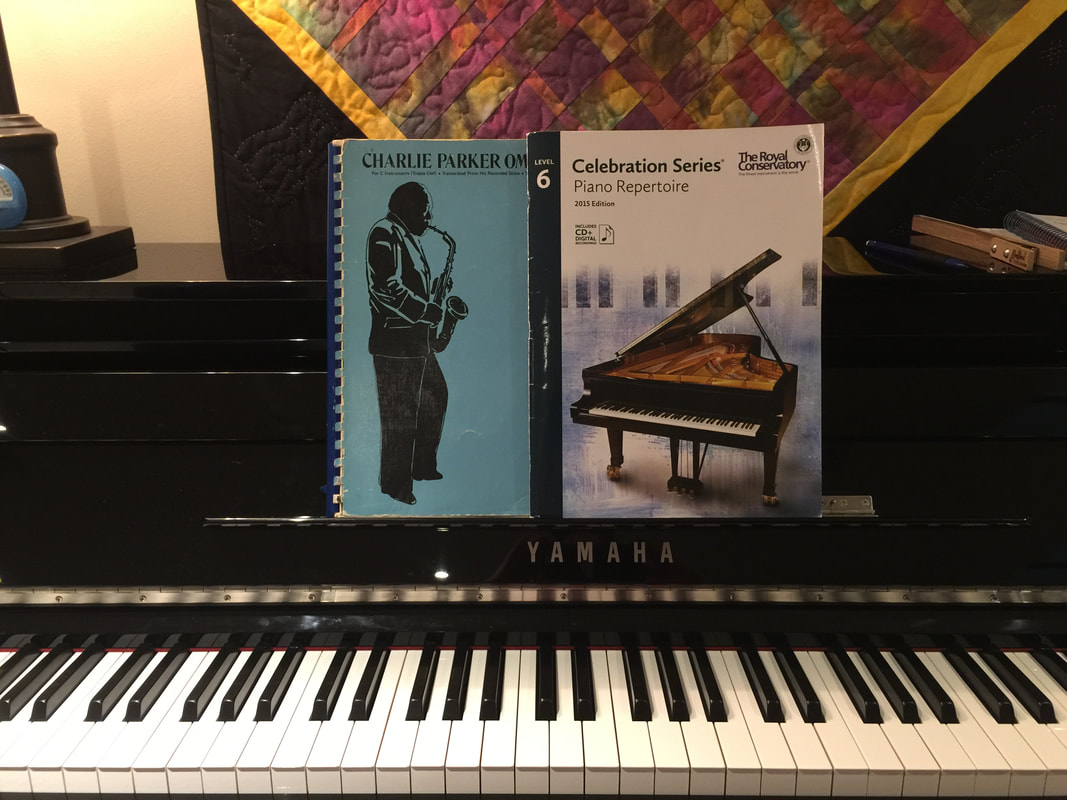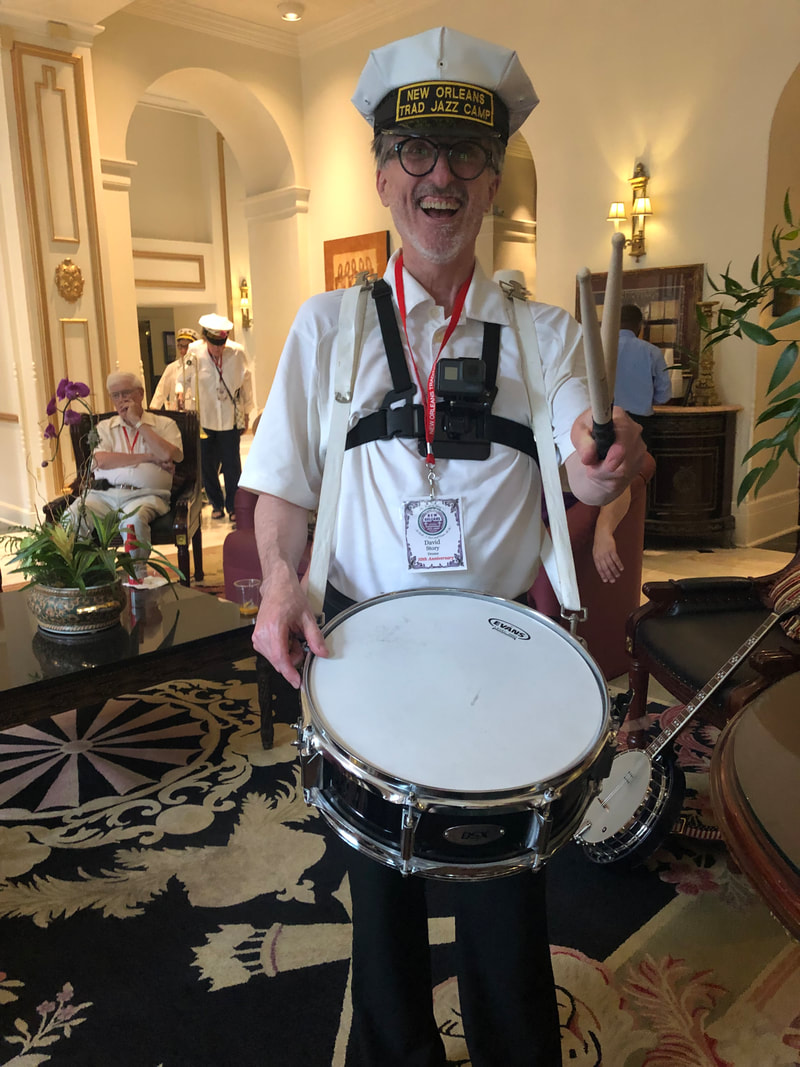|
New Orleans Traditional Jazz Camp Part 2 The place was full of happy and not so happy amateur jazz musicians. There were 26 performing groups at the big finale making a joyous noise. I loved it. Everyone knocked on themselves and apologized for the tiny imperfections in their performances. Too bad, 90%+ was the average when it came to playing the right notes, staying in place and blowing a solo. Just being there and participating is a triumph too. If I have been asked to give feedback to the group, this is what I would have said. "Master the basics of your instrument" Given that most of them are wealthy retirees, they have time. The basics include the following.
Love you all, it was a real honor to play with you all. David revised August 2022
0 Comments
I'm just back from a week in New Orleans studying and being coached on the great music of pre 1930 Jazz. I went as a drummer. I concur with the instructors that the key to mastering this music is to spend 80% to 90% of your practice time listening and playing along with recordings. Forget the books, go to YouTube, and start copying. Second, find musicians to play with and start playing. You can find the chords online easily enough. Now the other 10% to 20% of your time should be spent on the techniques of instrument proficiency: ear training, theory, scales, chords, arpeggios, sight-reading, written repertoire, and jazz history. Lastly, get in front of expert musicians occasionally for inspiration and feedback. Cheers, David updated August 2022 I start with 10 to 15 minutes watching some exceptional performances on the internet to get myself calmed down and in the zone. Then I'd do a few gentle stretch's and breathing exercises to prepare the body. Now to the piano.
Hello scales, chords, and arpeggios. I'd play them in sequence slow, then quicker, then slower again listening carefully for evenness of time and tone. A metronome would be used for some of it. I know mastering this is a cornerstone of my ambitions and one leg of the table. Now for a review of an old favourite. I'd vary this from day to day. A good opportunity to keep repertoire in my hands and remind myself that I do know how to play the piano. Next up: sight-reading, another leg of the table. A great chance to explore some new repertoire. Now for the main course, the new repertoire assigned by the teacher. First up, I'd listen while watching the score to the recording. Next I'd decide which small section to tackle first. I'd play really slowly with the correct fingering, good dynamics and careful attention to articulation. I'd record myself and listen back. I'd finish up with my etudes. -------------------------- Other days I would add and subtract activities to complete all of the assignments required by class. best regards, David Nearly all students start with the best of intentions. Somewhere along the way things go off the rails. It is a discouraging moment. Life has gotten in the way. Or, you are bored. What to do?
Some solutions from my students:
Now for a story. I have a 12-year-old student. She loves piano, she respects me, she is cheerful in class, but she hasn't been practicing for some time. I was thinking she was about to age out. (If you are an adult restarting or parent of former students you know what I'm speaking about.) So last week I gave her an instrumental pop piano piece of Andrea Dow. Yesterday, at lessons she plays it through with only minor bumps. Hmmm... We next try some pop lead sheet exercises from the same composer. She plays them right away. I say, "I need to speak with your mother". She looks worried. I say, "don't worry I want to say something nice about your work this week". Mom comes bounding in the room and before I can say a thing happily asks me what did I do last week in lessons? Her daughter has been practicing 45 minutes every day! The question answers itself. As we age, we change, our motivations and musical preferences change. So, we need to change our repertoire to reignite desire and fun in the practice room. best  Take some time off. Enjoy some alternate pursuits: your garden, fishing, watching baseball. Anything that will refresh the mind. If you are heavy practicer, your body and mind need a rest. If you are a casual player, a change of focus may help keep it fun. Me, I’m going fishing, biking, and hiking. Then… I will ramp up the piano practice after resetting my goals, organizing my practice space by reducing the clutter accumulated over the winter. And, getting busy. Cheers, David |
You've got to learn your instrument. Then, you practice, practice, practice. And then, when you finally get up there on the bandstand, forget all that and just wail. AuthorI'm a professional pianist and music educator in West Toronto Ontario. I'm also a devoted percussionist and drum teacher. Categories
All
|

 RSS Feed
RSS Feed